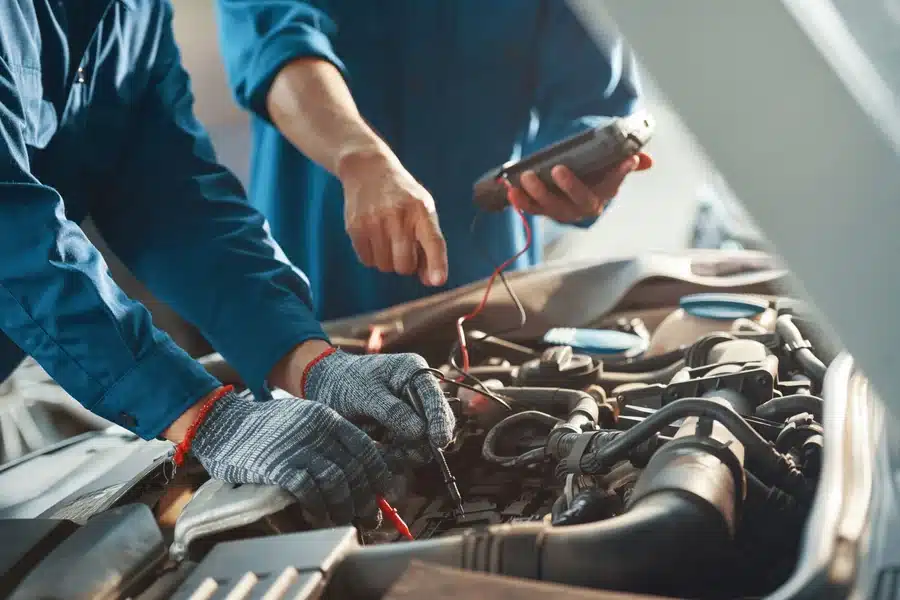Shocking Truths: 7 Common Car Electrical Problems You Shouldn’t Ignore

We often think of cars in terms of horsepower, torque, and fuel efficiency—but under the hood, a web of wires, sensors, and electronic systems plays just as crucial a role. Modern vehicles rely heavily on electrical components, and when these systems go haywire, it can lead to anything from a minor inconvenience to a full-blown breakdown, resulting in a crash that will need expert law firm car accident intervention. Understanding common Electrical Problems in your car can save you time, money, and stress, not to mention keep you safe on the road. Let’s take a closer look at the most frequent culprits and how to recognize them before they turn into expensive problems.
1. Dead or Failing Battery
Let’s start with the most obvious: the battery. A car battery powers everything from the ignition to the radio. Over time, especially in extreme temperatures, it can wear down. If your car won’t start, your headlights dim when you idle, or you hear a clicking sound when turning the key, a weak or dead battery could be the issue. Most batteries last about 3–5 years, so it might be time for a replacement if yours is older.
2. Faulty Alternator
The alternator is the unsung hero of your car’s electrical system. While the battery starts the car, the alternator keeps it running by recharging the battery and powering systems while you drive. Signs of a bad alternator include flickering lights, slow electrical accessory performance (like power windows or seat warmers), or even a warning light on your dashboard. Left unchecked, a bad alternator can drain your battery and leave you stranded.
3. Blown Fuses
Your car’s fuse box protects various electrical circuits. When too much current flows through a circuit, the fuse blows, sacrificing itself to protect more expensive components. A blown fuse can cause isolated issues like malfunctioning interior lights, power locks, or the stereo system. While replacing a fuse is usually cheap and simple, a recurring blown fuse could indicate a deeper Electrical Problems.
4. Bad Spark Plugs or Wiring
Spark plugs may seem more mechanical than electrical, but they are key in igniting the fuel-air mixture that powers your engine. Worn-out spark plugs or damaged plug wires can cause rough idling, poor acceleration, and even engine misfires. These symptoms often go hand-in-hand with reduced fuel economy. Replacing spark plugs and their wires is part of regular maintenance and can prevent bigger engine problems.
5. Malfunctioning Sensors
Today’s vehicles come loaded with sensors—oxygen sensors, crankshaft sensors, mass airflow sensors, and more. These components feed data to the car’s computer to optimize performance. When a sensor fails, it can trigger the “check engine” light, affecting everything from fuel efficiency to emissions. A diagnostic scan can identify which sensor is misbehaving, so you’re not left guessing.
6. Broken or Corroded Wiring
Wiring is like your car’s nervous system, sending signals to and from various parts. Over time, wires can fray, melt, or corrode—especially in areas exposed to moisture or heat. Symptoms of wiring problems include inconsistent electrical performance, sudden failures of certain systems, or even burning smells. Because wiring issues can be difficult to diagnose, it’s often best to let a professional handle them.
7. Faulty Ignition Switch
If turning the key (or pressing the start button) doesn’t start your engine, and you’ve ruled out the battery, the ignition switch could be to blame. This component connects the battery to the starter and other vital systems. Symptoms include flickering dashboard lights, failure to crank, or sudden stalling while driving. An unreliable ignition switch can put you in dangerous situations, so don’t delay repairs.
When Electrical Problems Lead to Bigger Trouble
Even when these challenges are frustrating, they usually don’t lead to serious risks until they suddenly do. An electrical problem may lead to losing the lights in the dark, steering difficulties or the engine suddenly cutting out. The risks rise a lot higher when an Electrical Problems causes a vehicle accident. In these situations, you should figure out if the issue is caused by the car being new or recently repaired. Having legal representation is very important at this point. If you hire an experienced auto law firm car accident team, they can help you clarify your rights, communicate with insurance agents and request compensation if somebody acted negligently.
Conclusion
Because cars are so advanced, taking care of their electrical systems has never been more critical. knowing the first signs of faulty wiring can help you prevent problems, drive safely and save on repair work. Even if something goes wrong during takeoff, get help from someone who is trained for these situations. Look for a good attorney who specializes in automotive liability, as you’ll see the difference it makes.
